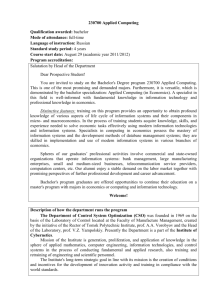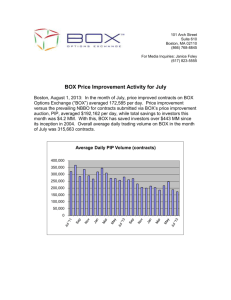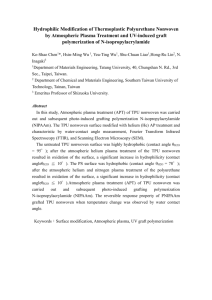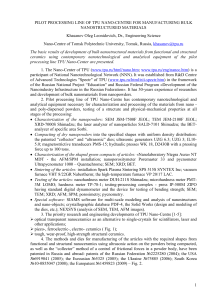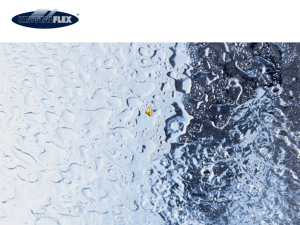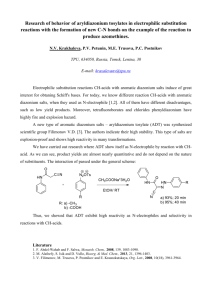TEACHER PERFORMANCE UNIT, LABOR SUPPORT UNIT AND
advertisement
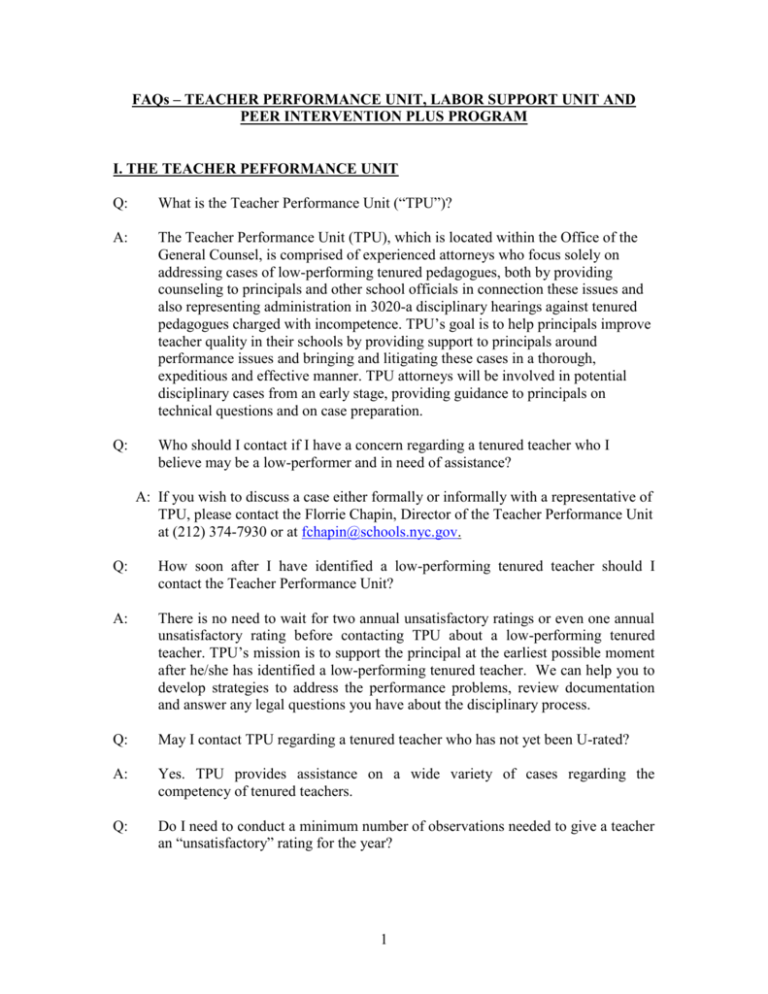
FAQs – TEACHER PERFORMANCE UNIT, LABOR SUPPORT UNIT AND PEER INTERVENTION PLUS PROGRAM I. THE TEACHER PEFFORMANCE UNIT Q: What is the Teacher Performance Unit (“TPU”)? A: The Teacher Performance Unit (TPU), which is located within the Office of the General Counsel, is comprised of experienced attorneys who focus solely on addressing cases of low-performing tenured pedagogues, both by providing counseling to principals and other school officials in connection these issues and also representing administration in 3020-a disciplinary hearings against tenured pedagogues charged with incompetence. TPU’s goal is to help principals improve teacher quality in their schools by providing support to principals around performance issues and bringing and litigating these cases in a thorough, expeditious and effective manner. TPU attorneys will be involved in potential disciplinary cases from an early stage, providing guidance to principals on technical questions and on case preparation. Q: Who should I contact if I have a concern regarding a tenured teacher who I believe may be a low-performer and in need of assistance? A: If you wish to discuss a case either formally or informally with a representative of TPU, please contact the Florrie Chapin, Director of the Teacher Performance Unit at (212) 374-7930 or at fchapin@schools.nyc.gov. Q: How soon after I have identified a low-performing tenured teacher should I contact the Teacher Performance Unit? A: There is no need to wait for two annual unsatisfactory ratings or even one annual unsatisfactory rating before contacting TPU about a low-performing tenured teacher. TPU’s mission is to support the principal at the earliest possible moment after he/she has identified a low-performing tenured teacher. We can help you to develop strategies to address the performance problems, review documentation and answer any legal questions you have about the disciplinary process. Q: May I contact TPU regarding a tenured teacher who has not yet been U-rated? A: Yes. TPU provides assistance on a wide variety of cases regarding the competency of tenured teachers. Q: Do I need to conduct a minimum number of observations needed to give a teacher an “unsatisfactory” rating for the year? 1 A: There is no minimum number of formal or informal observations needed in order for a particular teacher to receive an “unsatisfactory” rating for an academic year. While, ideally, teachers should be given written notice of performance problems and an opportunity to improve prior to receiving an unsatisfactory rating, the decision of how many times a particular teacher may be observed over a given period of time is left to the discretion and judgment of the principal(s) who would be in a position to make a decision on such matters. A. The Technical Assistance Conference Q: What is a Technical Assistance Conference “TAC”? A: In short, a TAC, or Technical Assistance Conference, is an in-person meeting, between the principal and the TPU Director or TPU attorney, at which they discuss the case and the attorney(s) offer counsel and recommendations as to how to proceed with the case. The conference typically lasts about one hour. The conference is typically held at TPU’s office, however, TPU will always endeavor, where possible, to meet the principal at his or her school. Q: How do I schedule a TAC? A: Please contact Florrie Chapin Director of the Teacher Performance Unit (TPU), by phone, at (212) 374-7930, or by email at fchapin@schools.nyc.gov, or submit, by fax or email a completed TAC request form. The form can be found on the DOE website. Q: How soon after requesting a TAC will I receive a meeting with the Teacher Performance Unit? A: The Teacher Performance Unit endeavors to schedule TACs at the earliest mutually convenient date. A representative from the Unit will contact you within five days of receiving the request to schedule a TAC. To expedite the process, it is absolutely critical that each principal provide TPU with the teacher’s entire personnel file, as well as any other documents which relate in any way to the teacher’s performance prior to the meeting. Without this documentation, it is impossible for TPU to make an effective assessment of the case. To be clear, in order to assess the case TPU needs every single piece of paper which relates to this teacher's pedagogical performance over the years. Q: What are the supporting documents that I need to provide to TPU before the TAC? A: Once a TAC has been scheduled, the principal or another school official should submit to TPU a completed TPU principal’s checklist (also found on the DOE 2 website) along with the requested supporting documentation. The documentation includes, among others, the pedagogue’s entire personnel file, all rating sheets (including any satisfactory ratings), letters to the file, and observation reports (formal and informal). In addition, all the materials demonstrating the Department’s efforts at remediation and offers of professional development should be included in the packet. Should you need guidance regarding this request please feel free to contact TPU. Q: What happens during the TAC? A: During the case conference, the TPU Director and staff attorneys will meet with the principal to discuss the case, make a determination whether the case is ready for 3020-a charges and to provide practical information and recommendations as to how the principal should proceed forward with the case. B. Procedure Following the TAC Q: What happens after my initial TAC meeting with the Teacher Performance Unit? A: After the case has been carefully reviewed a determination will be made, by TPU in consultation with the principal, as to whether to commence the 3020-a process at that time. Q: What happens if TPU accepts the case? A: If TPU decides to accept the case an email will be sent to the principal indicating that the tenured pedagogue will be charged. At such time, TPU will recommend that the teacher be removed from the classroom and assigned to administrative duties outside of the school. Note, if a principal requests that a pedagogue be removed for incompetence prior to a TAC with TPU, that request must be approved by the TPU Director, and such requests will be reviewed on an expedited basis. Note that such requests will be granted only in unusual circumstances. Q: If TPU accepts the case, how soon may a teacher is removed from my school? A: Once TPU accepts the case for disciplinary charges, TPU will email the ISC directing HR to reassign the teacher pending the outcome of disciplinary charges. Thereafter, HR will send a letter to the principal which provides the date and location of the teacher’s reassignment. The reassignment typically occurs within [1] week. Q: What happens if TPU does not accept a case? 3 A: If a determination is made that a 3020-a case should not be pursued at this time (ordinarily because it has not been developed to the point that there is a realistic chance to obtain a termination) that will be discussed with the principal at the TAC. Thereafter, an email will be sent to the principal indicating the reasons for that decision and advising the principal on what action should be taken next. In such instances, TPU and LSU will continue to offer high quality and responsive support to the principal, which may include, among other things, assignment of an LSU consultant to work with a principal, a recommendation to enroll the teacher in the PIP+ program, and/or, simply, continued observation and documentation of the teacher, as well continued professional development. II. LABOR SUPPORT UNIT Q: What is the Labor Support Unit (“LSU”)? A: The Labor Support Unit (“LSU”) is staffed by experienced school supervisors, most of whom are retired NYC public school principals. Their mission is to provide the first line of support to principals addressing low -performing tenured teachers. Their primary responsibilities are: to provide guidance and general assistance to principals in developing support programs for ineffective tenured teachers and, where necessary, guidance on technical evaluation and discipline issues; to help organize documentation of performance problems; to conduct additional observations of teachers upon request of the principal; and to coordinate with the Peer Intervention-Plus (PIP+) Program and the Teacher Performance Unit, as well as Human Resources and ISC counsel, on your behalf. LSU staff will be assigned to individual schools, so you will be able to work with one member of the LSU continuously. Q: What type of assistance can I expect from the LSU consultant? A: LSU staff will be assigned to individual schools, so you will be able to work with one member of the LSU continuously. The LSU staffer will meet with you initially to obtain background information about the teacher or teachers and to review documentation. Over the following several weeks, the LSU staffer will follow up with you to recommend an action plan for obtaining significant improvement from the teacher(s). The LSU staffer will then help you to implement the action plan and assess its effectiveness. If the teacher(s) do not show significant improvement, the LSU staffer will work with you to determine whether and at what point to bring disciplinary charges against the teacher(s) and will, along with your attorney from the Teacher Performance Unit, guide you through the disciplinary process. Q; How do I enlist the assistance of consultant from the Labor Support Unit? 4 A: A principal who would like to have the benefit of a consultant’s assistance should contact Florrie Chapin, Director of the Teacher Performance Unit, by phone, at (212) 374-7930, or by email at fchapin@schools.nyc.gov. or Dr. Elizabeth Arons at (718) 935-4919, or by email at earons@schools.nyc.gov Q: How much will the LSU consultant cost? A: These supports are being provided centrally without cost to schools. Principals will not have to find funds within their school budgets in order to access these services, regardless of how often they do so. III. PEER INTERVENTION PLUS “PIP+” Q: What is the PIP+ program? A: The Peer Intervention-Plus (PIP+) Program was jointly agreed to by the DOE and UFT as part of the 2006 contract between the parties. Under this agreement, the DOE and UFT have jointly selected an outside vendor, RMC Research Corporation, a national company with expertise in professional development, to provide objective, classroom experts (usually retirees from NYC or other school districts) who will work with unsatisfactory-rated tenured pedagogues over a 3month period to attempt to help them improve and to make an assessment of their performance. During the teacher’s participation in the PIP+ program, supervisors can, and are expected to, continue to observe and evaluate the teachers. Principals will have the option of inviting teachers in this category to participate in the program. The teacher must voluntarily agree to enter the program. If teachers decline the offer of assistance, this fact is admissible in disciplinary hearings. Q: Which teachers are eligible for the PIP+ program? A: The PIP+ is, pursuant to the agreement between the DOE and UFT, targeted specifically at tenured teachers in danger of receiving disciplinary charges for incompetence. That means the teacher must have, at a minimum, received one unsatisfactory annual rating Q: Who are the Peer Observers of the PIP+ program? A: RMC will assign an expert classroom teacher to work as a peer intervener with the struggling teacher for a period of approximately three months. These peer observers are neither UFT members nor employees of the New York City Department of Education. Their charge is to develop a plan for improvement for the low performing teacher, but also to provide an objective written evaluation of 5 the teacher’s competence at the end of the process that is admissible at 3020-a disciplinary hearings. Q: For how long does the PIP+ program run? A: The observers will work with this teacher for a period of approximately ten to twelve weeks. Please note, during this time, school supervisors will be fully free to continue to observe and evaluate the low-performing teacher. Q: How much does PIP+ cost? A: PIP+ being provided centrally without cost to schools. Principals will not have to find funds within their school budgets in order to access these services, regardless of how often they do so. Q: Is PIP+ the same program as the Peer Intervention Program (PIP) established in the 1990s? A: No. The Peer Intervention Program established in the 1990s is now only for teachers who are not in danger of disciplinary charges for incompetence. PIP+ is the sole program for tenured pedagogues in danger of receiving such charges. Linked [here] is a chart showing the differences between PIP and PIP+ Q: May I ask a teacher for his/her lesson plans while he/she is in the PIP+ program? A: Yes. A teacher’s participation in the PIP+ programs does not obviate his or her responsibilities regarding lesson planning. Q: May I conduct observations of a teacher who is in the PIP+ program? A: Yes. The PIP+ program allows principals and administrators to observe a teacher under the same conditions as prior to his or her entry into the PIP+ program. In fact, we encourage principals to continue to observe teachers, both informally and formally during the teacher’s participation in the program. 6

